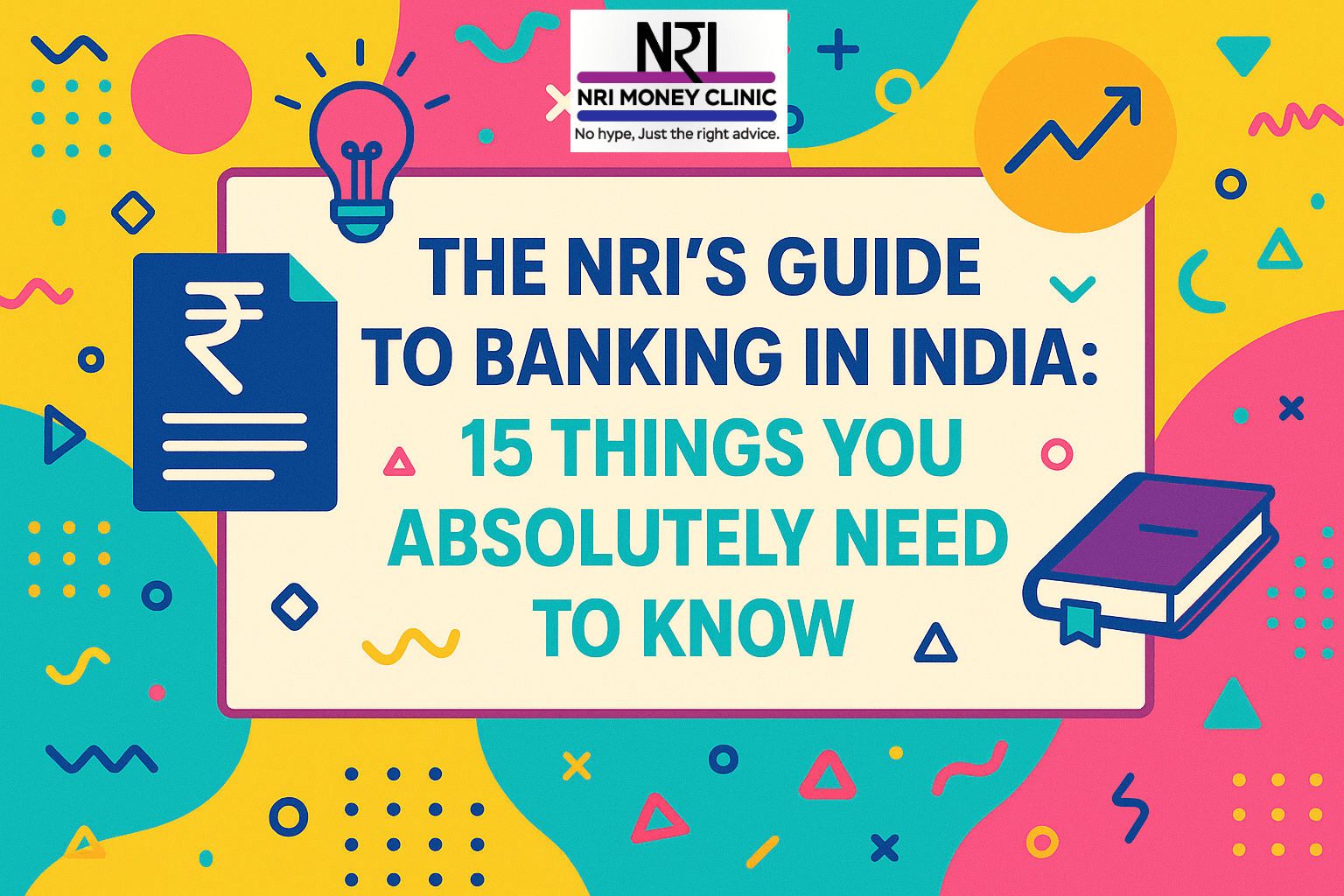Banking as an NRI doesn’t have to be confusing or stressful. Yet, many NRIs struggle with unnecessary complications—wrong accounts, tax trouble, frozen funds, and more. But what if you could avoid all of that by following just 10 key practices?
In this article, we have compiled 10 essential banking tips designed to help NRIs manage their finances more efficiently, avoid common pitfalls, and stay fully compliant with regulations—ensuring a smoother, safer banking experience both in India and abroad.
1. Don’t Spread Yourself Thin—Stick to Two Banks
Opening too many accounts across banks creates confusion and mismanagement. Stick to two major banks—one private (like HDFC, ICICI, Axis, Kotak) and one public (like SBI). Make sure they have strong IT infrastructure so you can bank online from anywhere.
Why two? If one bank has issues or freezes your account, you still have a backup.
2. Use the Right Accounts: NRE & NRO
As an NRI, your NRE account is for foreign income (salary, business income abroad). It’s fully repatriable and tax-free on interest.
Your NRO account is for income earned in India (rent, pension, dividends), and it’s taxable in India.
Pay bills and make investments directly from your NRE account to simplify tax and repatriation later.
Don’t unnecessarily transfer funds between NRE and NRO—it may trigger tax issues.
And absolutely do not hold a resident savings account as an NRI. Convert it to an NRO account as per FEMA rules.
3. Open a GIFT City Account—The Offshore Powerhouse
A GIFT City account is like having a bank account in Dubai or Singapore—only it’s regulated in India. Benefits include:
Multi-currency holdings
Flexible short-term fixed deposits
Tax-free interest for NRIs
Free repatriation of funds
Visit your bank while in India to open one—it’s easier when done in person!
4. Attach an Indian Mobile Number to Your Bank Account
Having an Indian postpaid mobile number is crucial for OTPs and secure banking access.
Prepaid numbers may lapse due to missed recharges, causing access issues.
Pro tip: Inform your mobile provider that you live abroad and want to receive OTPs while overseas. Some carriers allow this with a small fee.
5. Maintain Annual Statements for All Bank Accounts
Download and store annual transaction statements for:
NRE/NRO accounts
GIFT City accounts
Overseas bank accounts
Keep them safely (digitally or physically) for at least 8–10 years. This helps during:
Income tax scrutiny
Insurance maturity claims
Repatriation documentation
6. Always Collect Loan Closure Documents
When you close any loan—home, car, personal—don’t just celebrate.
Make sure to collect:
Original documents (property papers, RC books)
Loan closure statements or No Due Certificates
These prevent future disputes and prove your liabilities are settled.
7. Activate UPI—It’s a Gamechanger for NRIs
Yes, some banks now allow UPI on NRE/NRO accounts (like ICICI). Soon, others will follow.
UPI helps you:
Instantly pay for your parents’ groceries, bills, or emergencies in India
Go cashless while visiting India—even your cab driver or veggie vendor accepts UPI!
Don’t miss out on this revolution.
8. Avoid Bank Wealth Managers for Investments
Use banks for:
Deposits
Loans
Transfers
But don’t rely on banks for wealth management. Why?
Because wealth desks often focus on commissions—not your goals.
Instead, talk to independent financial planners—people you trust, who listen, and offer unbiased advice.
9. Open NRE/NRO Accounts Before Leaving India
New NRIs often wait till they’re abroad to open these accounts—then struggle with embassy attestations and paperwork.
As soon as you get a visa and job offer, walk into a bank in India and open both NRE and NRO accounts.
Carry:
Passport
Visa copy
Job offer letter
Air ticket (if available)
If the bank hesitates, ask for the NRI Cell to assist you.
10. Close NRE/NRO Accounts When You Return to India
Returning home permanently? You must close your NRE/NRO accounts within a reasonable timeframe (1–3 months).
Holding them after returning is a violation of FEMA, and any interest earned becomes taxable under the Income Tax Act.
Convert your accounts to Resident or RFC (Resident Foreign Currency) accounts and stay compliant.
Final Thought: Make Banking Work for You—Not Against You
Banking as an NRI is easy when you know the rules.
Follow these 10 points, and you’ll avoid legal headaches, save on taxes, and manage your money smarter.
Need help with account setup, investment planning, or repatriation?
Send us a WhatsApp message today—our experts are here to help.
https://wa.link/q8rw62



